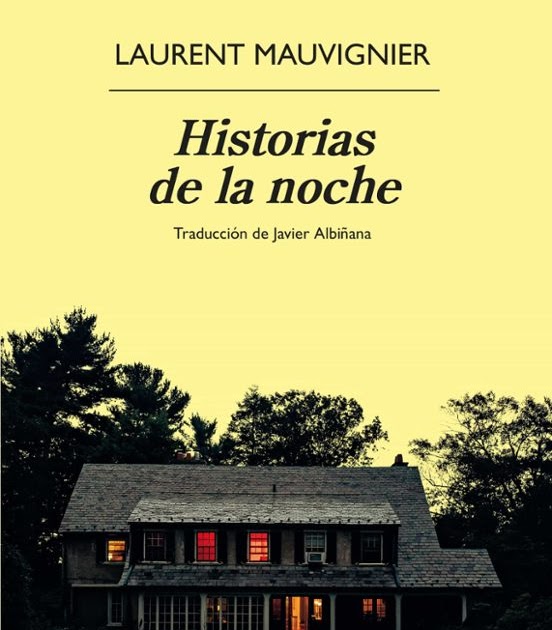
Original language: French
Original title: Night stories
Year of publication: 2020
Translation: Javier Albiñana
Valuation: Highly recommended
I’m not going to say that reading this book was a surprise because it was preceded by very good reviews and notable public success (which is not a guarantee of anything, on the other hand), but, of course, it has been a great way to to (almost) end the year with a good taste in your mouth and face the new year with renewed enthusiasm.
Laurent Mauvignier offers us in this novel a polar rural… or perhaps, since the police barely appear in it, it would be more accurate to say a thriller psychological. But rural, yes. Because the majority of the plot takes place in an écart or hamlet, appropriately called “Three Girls Alone”, near the village of La Bassée, but isolated in the countryside, in the middle of “emptied France”. The Bergogne family resides there: a farmer father, Patrice, a mother who works in the city, Marion, and a daughter who goes to school, Ida. In the house next door, his neighbor Christine, a Parisian painter who is close to old age and has long been secluded in that remote place. And that, for some reason, she is receiving threatening anonymous letters, so Patrice accompanies her to report him to the Gendarmerie on the day Marion turns forty. That night, while they are preparing the party, something will happen that will disrupt not only the evening, but the lives of all of them…
I am not going to reveal more about the plot, first so as not to spoil anyone’s reading, but also because its vicissitudes, although important, are not the crux of the novel, but how those circumstances and their evolutions are told. Mauvignier is telling us a story – and let’s not forget that it is a thriller with its intrigue, suspense and so on – in slow motion (I have read this in another review, I must be honest), with the cadence of spilling honey or melted wax… a way of narrating in which they acquire a weight unexpected each and every one of the gestures that the characters do or do not do and, above all, each of their thoughts, which the author squeezes out trying to get every last drop of juice out of them. A way of narrating that does not have to be exasperating, however (at least it didn’t seem that way to me), but that may make some people despair, since so much detail is combined with a convoluted style, full of subordinate clauses. , coordinated and derived several, with digressions, notes and observations… and all in some very long paragraphs in which it is easy to get lost (I suspect that the translator got lost at some point or, at least, he felt an immense relief when finishing the book)… that is to say, a very French style (whoever has read Michon, for example, will understand me) or, rather, that only French writers manage to make it works. Because the fact is that, Pussyyes it works, although it shouldn’t; What’s more, that dense style, which borders on baroqueism, contributes to making the reading of this novel more absorbing and even hypnotic. And that, why deny it, despite the psychological depth that the author gives them, many characters are somewhat clichéd – at least, at first – and some situations that occur, more typical of the script of a television film than of a novel ” of prestige” (whatever this means)…
Now, the thing is that, despite all the peculiarities mentioned – slowness, intricate style, clichés – the narration works and in what way… For this reader, at least, it has kept him glued to its pages from the beginning until the end, attentive and even fascinated by the passage of a story in which the characters move like the actors in a play whose most intimate thoughts and motivations we could know. Above all, it is a novel in which tension surrounds us like steam in a sauna, in such a way that it cannot be cut, as they say, but directly chewed, as long as we are receptive to this proposal. And, believe me, it is worth doing it.
Also from this author in A Book A Day: in the peat
Source: https://unlibroaldia.blogspot.com/2025/01/laurent-mauvignier-historias-de-la-noche.html


